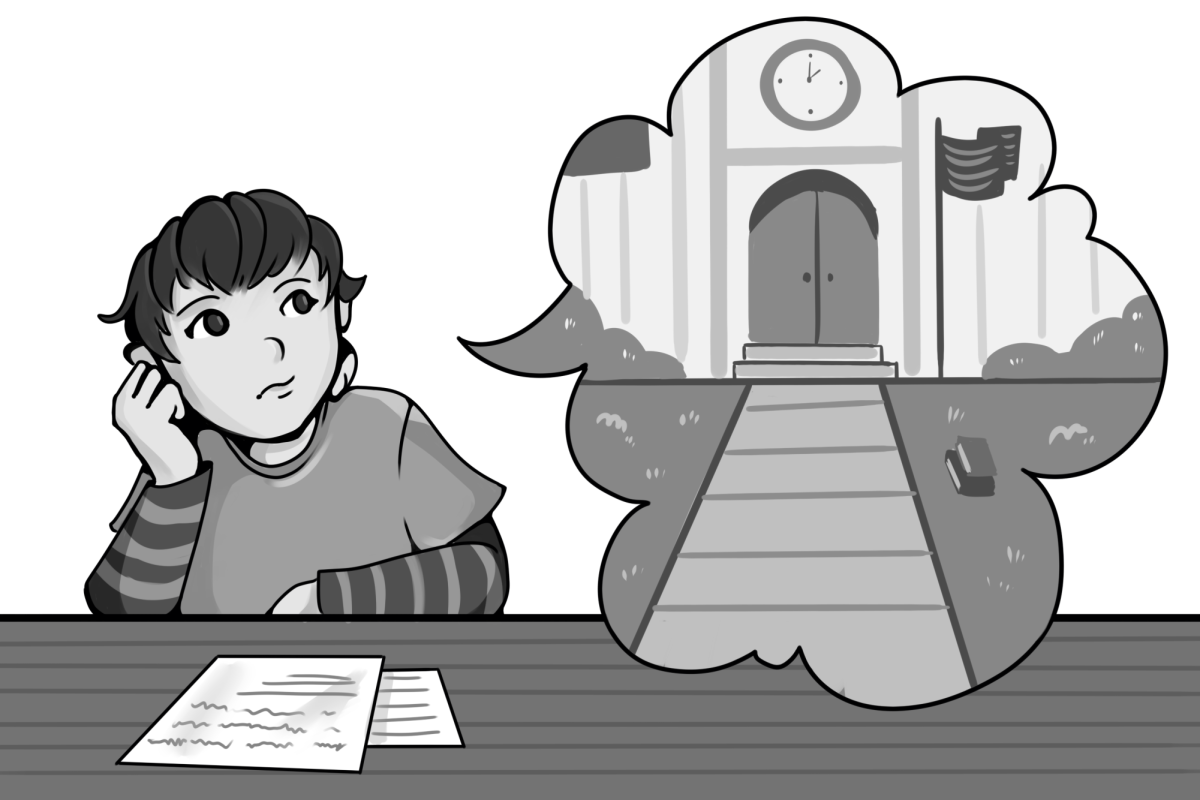It’s a Friday night, and the stands around Ted Slavin Field are empty. It’s Wednesday, and the dinner table has an open spot as a computer keyboard clicks upstairs. It’s winter of senior year, and someone’s friendship is strained over an Early Decision (ED) application. It’s a normal day, and students are so focused on getting into college that they forget how to be people.
Google describes the school as a “co-educational college preparatory day school.” It is just a fancy way of describing a high school, but it also serves as an image of what life at the Upper School can be: three years of eating, sleeping and breathing college admissions. Students enroll in the school with the aspiration of receiving a top-notch education and securing admission into a prestigious college. What becomes problematic, though, is that students are willing to risk their mental health, friendships and personal morals to achieve academic perfection.
Football is often seen as a quintessential part of the high school experience in the U.S. Friday night games are a time where students stand shoulder to shoulder, cheer on their peers and bond over chants for referees who seem to need to get their eyes checked. At our school, however, there is a common theme at most extracurricular events, no matter how successful the team is: a severe lack of attendance.
There is a thought shared among high achievers at the school: “How will this help me get into college?” This lack of support for the greater student body is not limited to football games; we see similar patterns of mediocre attendance at all student performances. The small attendance is not surprising — why would one go to a boys’ soccer game or a student play when they could do their own homework or spend more time on their extracurricular activities? Though these activities might be fun and give students a chance to socialize, they won’t contribute to their college applications or guarantee them an A on their next math test. Students don’t show up for each other because they are too busy showing up for themselves.
Though students might cheat themselves by focusing too much on their own activities, the real self-sabotage takes place with academic dishonesty, which many students feel is necessary in order to be competitive for selective colleges. Students’ ethics are tested at a school so challenging that one can prepare for weeks on end and walk out of a test with a B. That is not to say that students at other schools don’t cheat, but the chances of it increase at a school like Harvard-Westlake.
Going to school isn’t just about getting a grade — it’s about learning how to process information and how the world works. Success comes from fostering a deep understanding and love for what one does and learning to propel these interests into something amazing. This does not come from looking up an answer — it comes from grappling with the material and understanding it, even if this doesn’t result in a perfect score. Students chose to attend a school with some of the greatest teachers and learning resources in the nation; the correct way to make use of these opportunities would be to tread down the difficult path that will encourage them to grow.
As difficult as it is to put aside the inherent competition that comes with attending an elite institution, students need to stop approaching their high school experiences as a stepping stone into college and begin seeing it as a chance to grow as individuals. That growth comes with learning to be a good friend and supporting peers, knowing how to read books and not Sparknotes and finding the grit in oneself to persevere. Going to a top 20 university may seem like the end all be all at 17, but taking the time to self-develop and learn good working habits will have greater implications on students’ lives in the long run.































